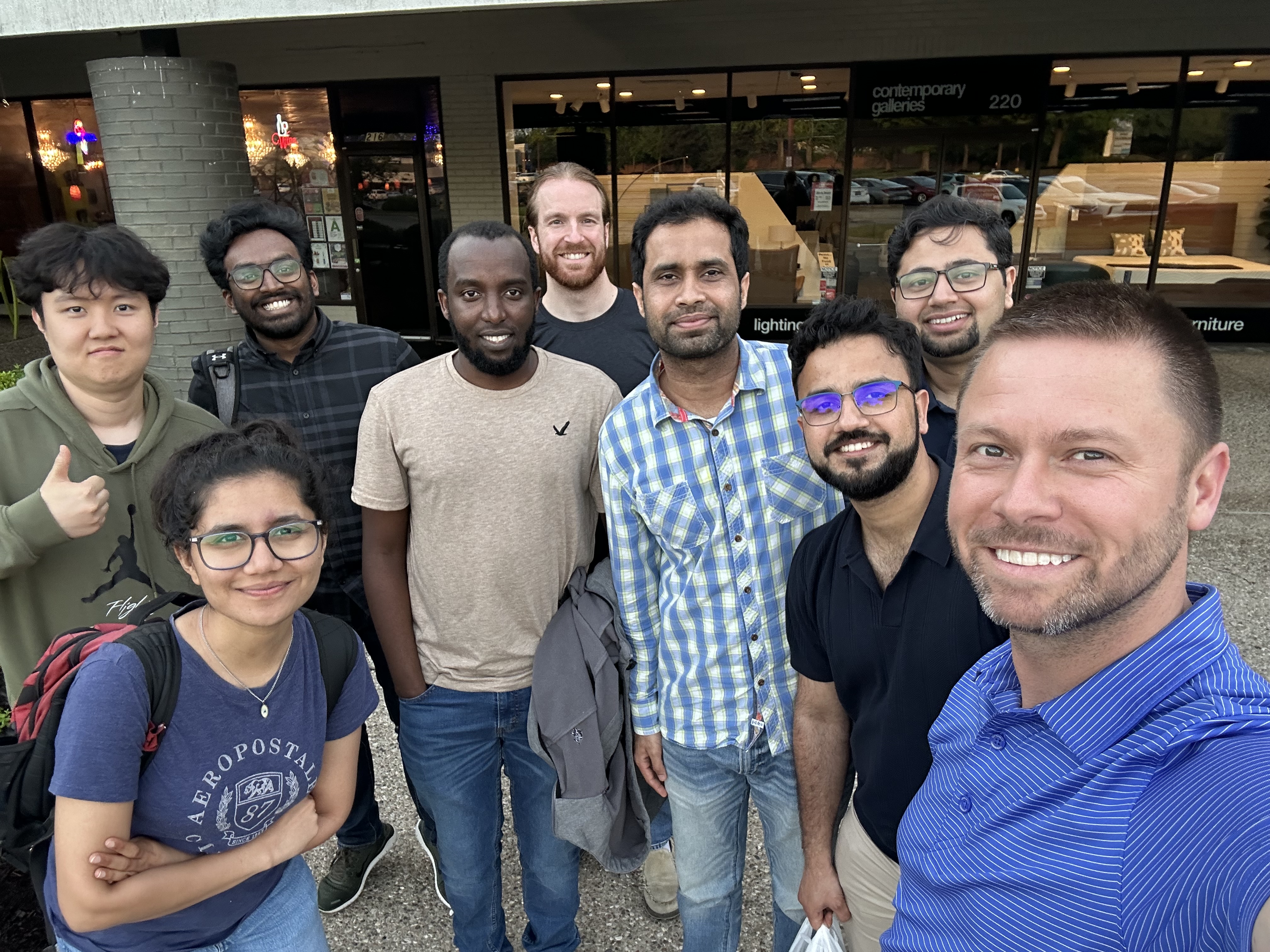Team
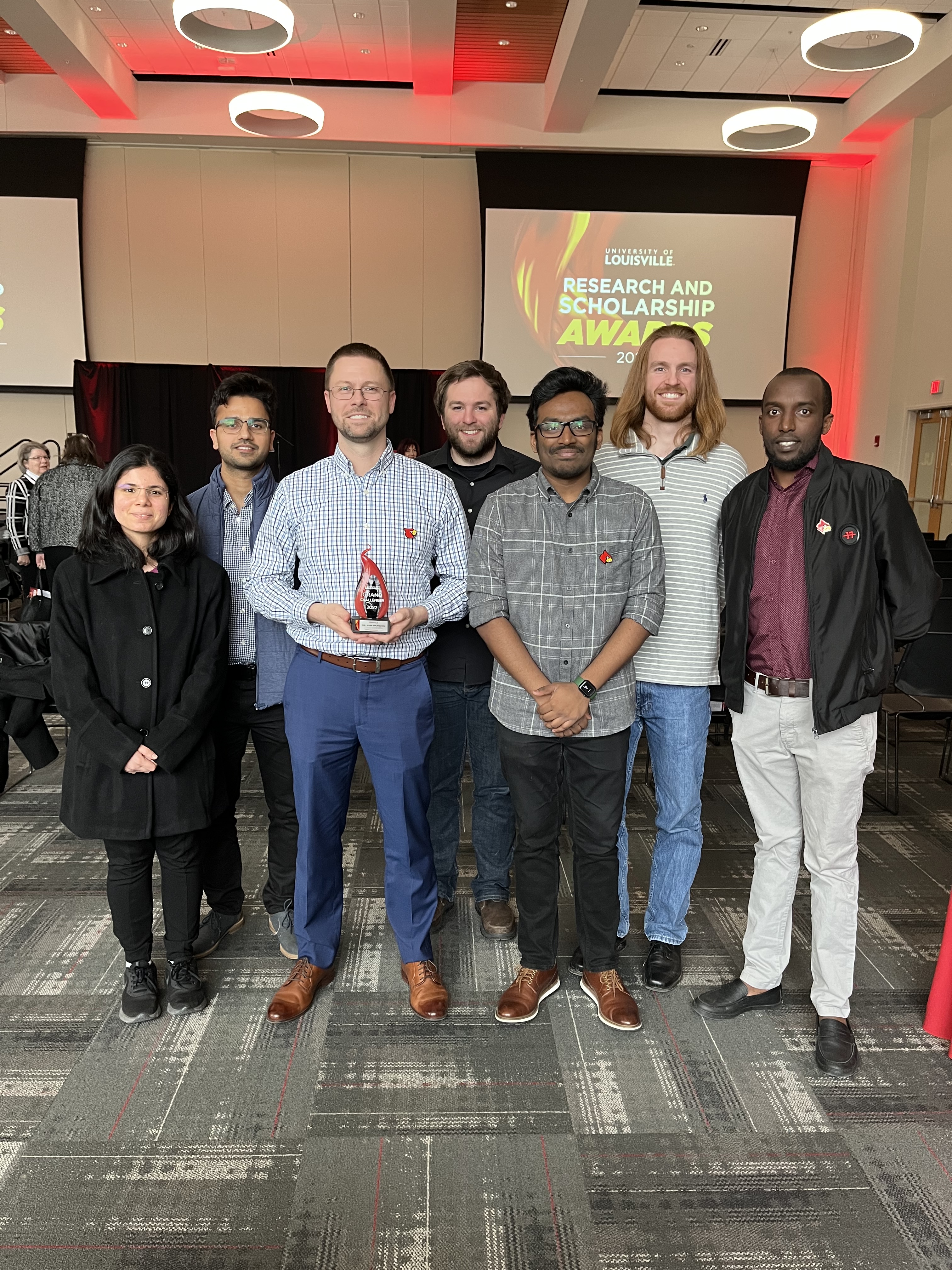
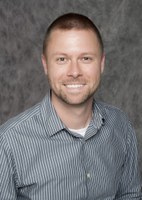
Joshua Spurgeon, PhD, is the Theme Leader for Solar Fuels research at the Conn Center and is focused on economically viable approaches to solar fuels, electrosynthetic fuel formation, and novel, low-cost solar cell technologies.
He received his doctorate in Chemical Engineering from the California Institute of Technology in 2010. He also holds an MS in Chemical Engineering from Caltech (2006) and a BS in Chemical Engineering from the University of South Carolina (2004). He conducted research on proton exchange membrane fuels cell at the University of South Carolina (2000 – 2004), before pursuing research into scalable and inexpensive nanostructured photovoltaics at Caltech (2004 – 2009). As a post-doctoral scholar at Caltech (2010), he worked on multifunctional membranes for solar fuels applications and demonstrated the viability of solar-driven water vapor electrolysis. He then became a Research Scientist at the inception of the Department of Energy’s solar fuels innovation hub, the Joint Center for Artificial Photosynthesis (JCAP, 2011 – 2013), where his research involved photoelectrochemical studies of the interfaces between catalysts and semiconductors. He became Project Lead for the Interface group and Processing, Materials, and Integration Team at JCAP (2013) before leaving for the Conn Center at the University of Louisville in 2014.
Josh’s research includes the study of novel photoelectrode materials for solar fuels generation, earth-abundant electrocatalysts for water-splitting, and the design and innovation of novel catalysts and electrolyzer systems for fuel formation through the reduction of carbon dioxide.
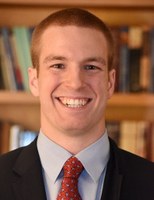
Matthew Mulvehill is a chemical engineering PhD candidate at the University of Louisville Conn Center for Renewable Energy Research. His research is investigating tandem semiconductor microwires for unassisted solar water splitting.
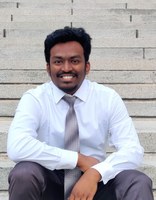 Sandesh Uttarwar is a chemical engineering PhD candidate at the University of Louisville Conn Center for Renewable Energy Research. He is working on the development of a flow cell electrolyzer for the reduction of carbon dioxide in methanol solvent.
Sandesh Uttarwar is a chemical engineering PhD candidate at the University of Louisville Conn Center for Renewable Energy Research. He is working on the development of a flow cell electrolyzer for the reduction of carbon dioxide in methanol solvent.
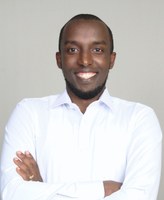 Francois Nkurunziza is a chemical engineering PhD candidate at the University of Louisville Conn Center for Renewable Energy Research. His research involves the study and implementation of molecular catalysts for carbon dioxide reduction in practical electrolysis systems.
Francois Nkurunziza is a chemical engineering PhD candidate at the University of Louisville Conn Center for Renewable Energy Research. His research involves the study and implementation of molecular catalysts for carbon dioxide reduction in practical electrolysis systems.
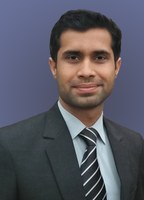
Abdul Basit Naveed is a chemistry PhD candidate at the University of Louisville Conn Center for Renewable Energy Research. His research involves studying organometal halide perovskite compositions for increasing water stability for applications in solar water-splitting.
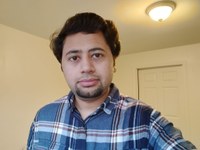 Aftab Javaid is a chemistry PhD candidate at the University of Louisville Conn Center for Renewable Energy Research. His research involves the exploration of optical and magnetic effects in tandem semiconductor structures to enhance unassisted solar water-splitting efficiency.
Aftab Javaid is a chemistry PhD candidate at the University of Louisville Conn Center for Renewable Energy Research. His research involves the exploration of optical and magnetic effects in tandem semiconductor structures to enhance unassisted solar water-splitting efficiency.
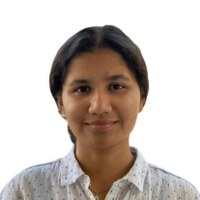 Bhavi Shah is a chemistry PhD candidate at the University of Louisville Conn Center for Renewable Energy Research. Her research investigates fundamental interfacial phenomena during integrated capture and conversion of CO2.
Bhavi Shah is a chemistry PhD candidate at the University of Louisville Conn Center for Renewable Energy Research. Her research investigates fundamental interfacial phenomena during integrated capture and conversion of CO2.
Alumni
Graduate students
Jacob Strain, PhD. Jacob studied the electrochemical reduction of carbon dioxide to liquid fuels such as ethanol. He worked on heterogeneous cascade catalysis systems and a pulsed-bias electrochemical approach to have greater control of the selectivity of products. This work involves the design of multistage electrolysis reactors as well as characterization of the reactions which lead to ethanol and other multicarbon species. He became a postdoc at the University of Texas at Austin.
Sahar Pishgar, PhD. Sahar studied III-V semiconductors for use in direct photoelectrochemical water-splitting. Her work studied a novel ternary material, and she also performed fundamental studies of in-situ photocorrosion. She became a postdoc at the University of Michigan.
Saumya Gulati, PhD. Saumya studied two-semiconductor tandem microstructures for optimized solar water-splitting. In particular, she worked towards a high efficiency particulate semiconductor system for low-cost solar hydrogen generation. She became a postdoc at Yale University.
Post-doctoral researchers
Hyogyun Roh, PhD. Dr. Roh worked in the Conn Center developing electrodeposited arrays of re-entrant microstructures to create anti-wetting interfaces for electrodes in non-aqueous solvents.
Manu Gautam, PhD. Dr. Gautam worked in the Conn Center investigating the effects of flue gas contaminants on the performance of electrochemical carbon dioxide reduction in methanol, and then later on reactive carbon capture through imidazolium carboxylates.
Bijandra Kumar, PhD. Dr. Kumar worked in the solar fuels group on carbon dioxide reduction catalysis. His work resulted in publications on pulsed-bias CO2 reduction and formic acid selective catalysis, among others. He joined the faculty at Elizabeth City State University.
Sudesh Kumari, PhD. Dr. Kumari worked in the Conn Center on the development of organometal halide perovskite solar cells as well as hydrogen production through the electrolysis of ambient water vapor. She also investigated plasma-synthesized electrocatalysts for water oxidation and also developed a plasma-assisted electrochemical synthesis of ammonia from nitrogen and water.
Visiting scholars
K. Ramachandra Rao, PhD. Dr. Ramachandra conducted work on the selective photoelectrochemical reduction of carbon dioxide to formic acid.
Samsudeen Naina Mohamed, PhD. Dr. Samsudeen worked in the Solar Fuels group in collaboration with the Biofuels theme on microbial electrolysis of wastewater for hydrogen generation.
Liangqing Cheng, PhD. Dr. Cheng investigated plasma-synthesized TiIrOx alloys for water oxidation electrocatalysis.
Ying "Sylvia" Liang, PhD. Dr. Liang investigated the electrochemistry of carbon dioxide reduction in a methanol system. She is an associate professor of chemistry at Guangdong Pharmaceutical University in China.

